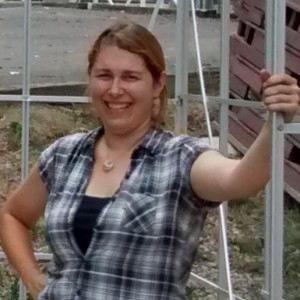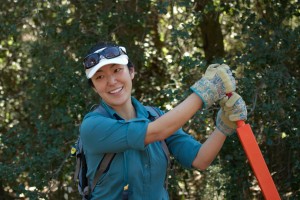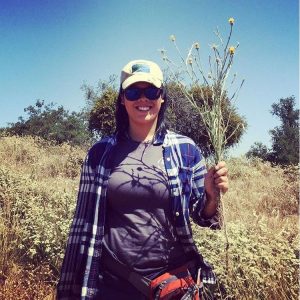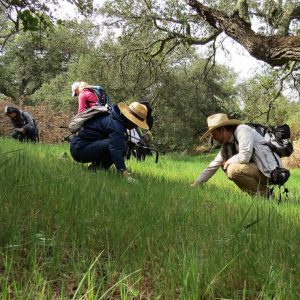by Reginald Durant, Executive Director, Back to Natives
 Here at BTN we are asked all the time: “what College Major do we recommend?” This is not an easy answer on the one hand, but a very easy answer on the other.
Here at BTN we are asked all the time: “what College Major do we recommend?” This is not an easy answer on the one hand, but a very easy answer on the other.
First and foremost we recommend you major in specialty that YOU love and enjoy and can see yourself working in the rest of your life! That is the key to success and happiness. To love what you do, and do what you love. Be sure that you know what this is, as a hobby can become a tormented existence if you force it to be your career. Keep some things for play, and enjoyment and relaxation, but make your passion work for itself. Your passion will drive your actions anyway. Make it drive you to success and happiness. Don’t have a passion? Don’t worry, that is what your undergrad requirements are for. To expose you to as many topics and disciplines as possible before you decide to specialize in one. So don’t choose your major too early, or else you may never experience your one true career love, and are instead forced to settle for the discipline you have taken the most classes in. But not to worry, even if you majored too early. Associate’s degrees can still lead to a completely different Bachelor’s. And a Bachelor’s can lead to a completely different Master’s. Just recognize what you love, and what you love DOING! These are two different things.

We cannot tell you what you will love. We cannot tell you what you will succeed in. And we cannot tell you what will be easiest or most difficult for you. That is an individual thing that only you can decide as you experience life and your education. We can tell you to be honest and upfront with everything you do. Adhere to academic honesty. Cheating in school or college just sets you up to fail in real life, as you will have prevented your own success by removing the likelihood of acquiring the tools you needed to succeed in your discipline. Nobody likes a cheater.
What we can tell you is what Back to Natives Restoration needs! We need Biologists, (and all of the specialized areas of biology) because we perform habitat restoration for animals! We need Botanists, because habitat restoration is performed by identifying native versus nonnative plants and removing the nonnatives! We need geologists and soil scientists, because identification of plant communities are based on the soils! We need GIS specialists, because we need to map our project sites and establish master plans for restoration, trails, species conservation etc. We need Office Managers, (because we have an office!). We need communications specialists because we communicate with the community through social media, press releases and graphics! We need actors/teachers because we teach and perform in front of audiences daily. And not all scientists are up for that, so we need surrogates at times to bring the facts of our studies and research to the community!
 What we don’t need: Environmental Studies or Environmental Science Majors. The Environmental Studies major prepares you with none of the science we need for you to be prepared with to be a biologist or botanist, nor the specialty of any of the others listed above. Instead it tells you what is wrong with the world and provides you with no tools to fix it outside of policy. And the Environmental Science major gives you enough science to really know what is wrong with the world and provides you with no tools to fix it. Everyone is an ES major now. So if everyone is an ES major, how many jobs require an ES major? None that we know of.
What we don’t need: Environmental Studies or Environmental Science Majors. The Environmental Studies major prepares you with none of the science we need for you to be prepared with to be a biologist or botanist, nor the specialty of any of the others listed above. Instead it tells you what is wrong with the world and provides you with no tools to fix it outside of policy. And the Environmental Science major gives you enough science to really know what is wrong with the world and provides you with no tools to fix it. Everyone is an ES major now. So if everyone is an ES major, how many jobs require an ES major? None that we know of.
With a biology or botany major, you still may not know the locally native animals and plants, but at least you have the tools to key them out. And we can teach you them based on the skills you acquired in school.
So please, reconsider the Environmental Studies or Environmental Science major. We know of no organization, agency or company that is looking for these majors to recruit. And ALL of the colleges and universities are producing hundreds of thousands of these majors each year, and have scaled down or eliminated the biology spot recruitments, as it costs them much more money to teach those majors. But they are worth it! Take science! Chemistry, Math, Biology, Botany! They can be fun, all of them, with the right instructor! But mostly they can be fun if it is what you love and are passionate about.
 If you do not like any of these subjects, then habitat restoration is NOT the career for you. We avoid applicants that say:
If you do not like any of these subjects, then habitat restoration is NOT the career for you. We avoid applicants that say:
“I want to work with nature,” but don’t have interest in chemistry or ecological systems or interactions between plants and animals, or do not want to dig or get dirty.
“I love plants, but I hate math and chemistry.” Then you would hate Habitat Restoration. We must measure sites and plant growth, and count, and add/tally, and create percentages of cover, statistics of pollination, animal usage of sites and plants, identification of soils through texture, sight and chemical analysis, water quality studies through chemical analysis, and much more.
“I want to work with plants.” Great! We pull hundreds of thousands of weeds per year! How is that for working with plants? If we achieve our eradication goals, we hope we will have time to collect seed and potentially spread it at our site, or propagate it at our licensed nursery.
“I love hiking, but I don’t like to stay on the trails or clean my shoes between trails.” WHAT? BTN only goes off trail when performing habitat restoration. Just because we work with land managers to perform habitat restoration does not exempt us from the destruction that going off trails causes: erosion; biological boundaries for small animals; destruction of seedlings in creek beds or soft soils; compaction of soils and prevention of new flora volunteerism and much more. When you go off trail you are destroying the very thing you think you are loving. So stop it and stay on the trail! And not clean your shoes? Do you have any idea how many nonnative seeds one single shoe can carry? Or how many pathogens can now be spread just by walking through an infected area? Look at the new weed maps being created. And the people that are creating these new weed maps are actually SPREADING the weeds. The maps show that the first three times they visit a remote area the weeds were not present, but for some mystical reason the next time they went, suddenly the weeds were there! It is because these new, nonscientist weed mappers, are NOT sanitizing their shoes or tools between hikes to these areas, and so are spreading the weed seeds EVERYWHERE! It is so simple: You wash your hands to prevent spreading illness or becoming sick yourself. Then wash your tools and shoes to prevent spreading weeds and pathogens in the environment! Once again, these are science based realizations: pathogens, contagions, such as viral, fungal and bacterial vectors. These are taught in science classes, not policy classes.
So please, if you wish to perform habitat restoration as a career, major in a science relating to that specialty: Ecology, Biology, Botany, Herpetology, Zoology, Ornithology, Ichthyology, Entomology, Mycology, Evolutionary Biology, Marine Biology, Geology, BioChemistry, Oceanography, Soil Science, Cartography, Geographical Information Science, and more under these disciplines.
But also, we do need office people, and horticulturists and accountants, and much more. None of these require an Environmental Studies or Environmental Science degree. They require much more!
